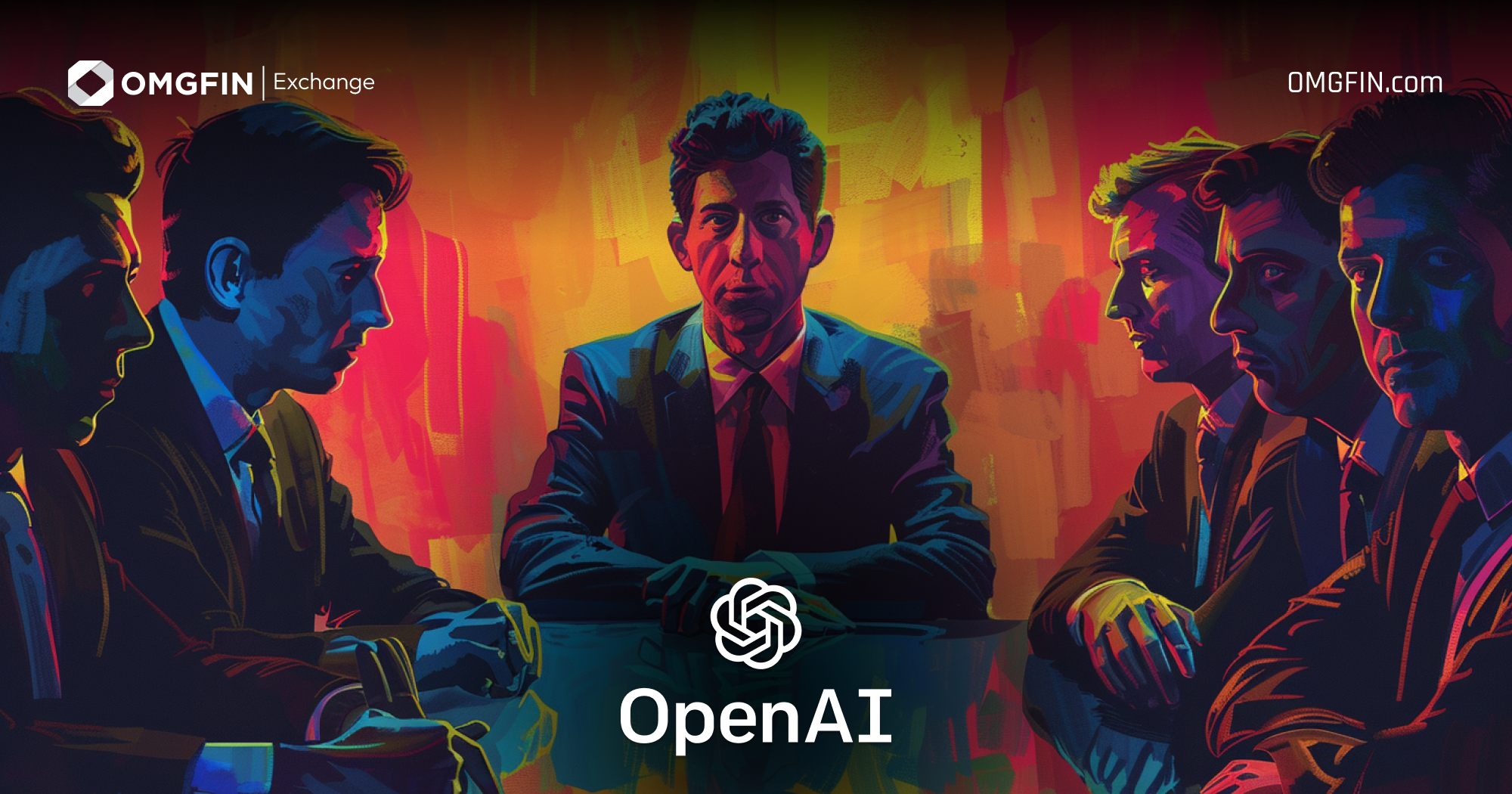OpenAI Welcomes Sam Altman Back to the Board and Addresses Musk Lawsuit
Print
Modified on: Mon, 11 Mar, 2024 at 1:37 AM
OpenAI, the trailblazing AI research lab and policy advocacy group, is at the center of significant organizational developments and legal proceedings. The return of Sam Altman to the board of directors, along with the appointment of three distinguished new members, signals a turning point for the company. These board changes come in the wake of a tumultuous period during which Altman was dismissed and then reinstated in quick succession. Additionally, Elon Musk's lawsuit against OpenAI seeks to push the organization back toward its original commitment to open-source technology. Delve into the comprehensive coverage of OpenAI's recent developments and the impact on the broader blockchain and cryptocurrency landscape.

In a striking turn of events, Sam Altman, a prominent figure in the tech and AI spheres, has made a triumphant return to the OpenAI board of directors. Alongside Altman’s reinstatement, the board has also welcomed three eminent new members: Sue Desmond-Hellmann, the former CEO of the Bill and Melinda Gates Foundation; Nicole Seligman, the former executive vice president and general counsel at Sony Corporation; and Fidji Simo, the chair of Instacart. This strategic restructuring comes after a period of upheaval, during which Altman was initially ousted from the board and briefly removed from his position as the company’s CEO.
Altman’s abrupt departure in November 2023 raised eyebrows and led to internal and external consternation. News reports from Cointelegraph at the time highlighted the dissatisfaction among OpenAI employees, with over 500 of the 700-strong workforce voicing their opposition to the board's decision. The subsequent statements from OpenAI acknowledged the unforeseen consequences of Altman's sudden removal, underscoring the underlying instability it caused within the organization.
The reinstatement of Altman, coupled with the addition of the new board members, marks a significant step forward for the leadership of OpenAI. Bret Taylor, the chair of the OpenAI board, emphasized the unanimous agreement among the board members that Altman and Greg Brockman are the right leaders for the company. This development is pivotal not only for OpenAI but also for the broader AI and technology industries, given Altman's extensive influence and contributions in the field.
Meanwhile, Elon Musk, a high-profile figure in the tech and cryptocurrency space, has taken legal action against OpenAI. Musk, known for his involvement in ventures such as Tesla and SpaceX, filed a lawsuit in February 2024, alleging that OpenAI violated its commitment to making AI breakthroughs freely available to the public. The lawsuit targets OpenAI’s purported shift toward becoming a for-profit entity, a deviation from the organization's founding principles as an open-source company.
The legal dispute between Musk and OpenAI raises profound questions about the intersection of AI, open-source technology, and commercial interests. Musk's lawsuit seeks to revert OpenAI to its original ethos of open-source innovation, with a specific focus on preventing the for-profit exploitation of artificial general intelligence technology. These legal developments have significant implications for the future trajectory of OpenAI and the broader landscape of AI and blockchain technologies.
This legal confrontation also occurs against the backdrop of ongoing regulatory challenges within the cryptocurrency sector. Binance, a leading cryptocurrency exchange, has been embroiled in a class-action lawsuit filed by investors, which has recently seen a pivotal reversal. The United States Court of Appeals for the Second Circuit overturned a prior ruling that dismissed investors' claims of transparency issues in Binance's sale of alleged securities. The appeals court concurred with the plaintiffs' assertions that Binance is subject to domestic securities laws, marking a significant legal setback for the cryptocurrency exchange.
The legal tussles involving OpenAI, Binance, and other industry players underscore the complex interplay of technology, regulation, and commercial interests in the blockchain and cryptocurrency spheres. As the landscape continues to evolve, it’s crucial for industry participants and stakeholders to stay abreast of these developments and their potential ramifications.
In closing, the latest developments at OpenAI and the legal challenges confronting the cryptocurrency sector offer a compelling glimpse into the dynamics shaping the broader tech and blockchain industries. The return of Sam Altman to the OpenAI board, the addition of esteemed new members, and the legal clash involving Elon Musk underscore the intricate interplay of leadership dynamics, commercial imperatives, and regulatory pressures in these cutting-edge domains.
With these transformative events unfolding, the implications reverberate far beyond the immediate organizational and legal domains, offering invaluable insights for participants across the blockchain and cryptocurrency ecosystems. As the industry continues to chart its course, the significance of these developments cannot be overstated, inviting introspection and deliberation on the future trajectory of AI, blockchain, and cryptocurrency technologies.
(CIARAN LYONS, COINTELEGRAPH, 2024)
Did you find it helpful?
Yes
No
Send feedback Sorry we couldn't be helpful. Help us improve this article with your feedback.
